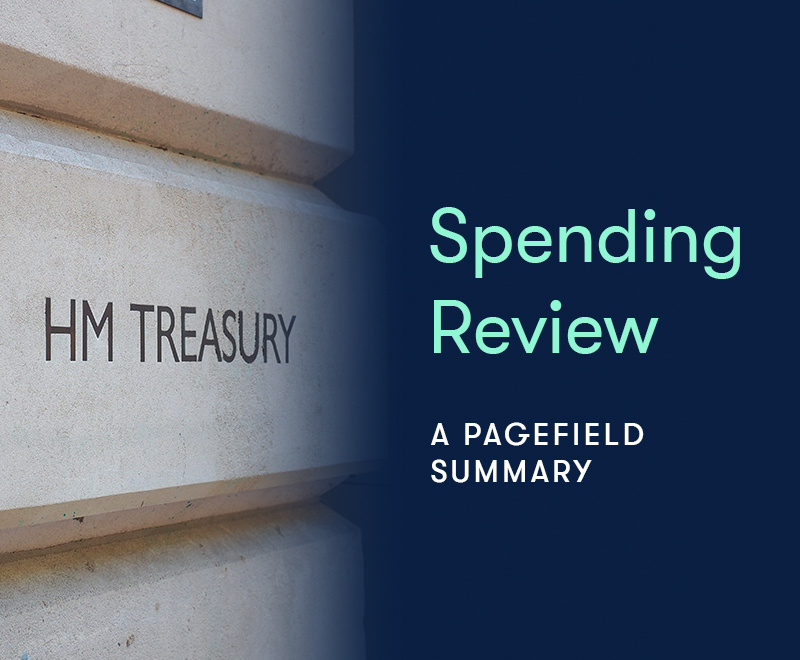It’s difficult to imagine a more challenging backdrop for the annual conference of a governing political party. Needing to drag the economy out of the wreckage of Covid-19 while the virus continues to permeate through society was the task facing the Conservatives as the four-day virtual event began on Saturday.
Just ten months ago, after a landslide election victory, the Prime Minister predicted that 2020 would be a “fantastic year for Britain” – not quite the superforecasting Dominic Cummings had in mind. Boris Johnson needed to use this year’s platform to reassure his party that he still has the dynamism for the job, amid rumours that he continues to experience the after-effects of the virus. He wanted to persuade the Conservatives to keep going through this miserable winter with the promise that tackling the pandemic wouldn’t be the sum total of this government’s work.
The party membership was meant to infer that things can only get better – a familiar phrase from political campaigns gone by. That said, the virtual conference was plagued by technical issues which overshadowed proceedings. This would have been acutely annoying to a government already under siege from accusations of IT illiteracy owing to recent bungling of Covid infection figures.
For Johnson, it was equally essential to reassure party members and MPs that he was still a Conservative, despite the vast sums of money spent by Chancellor Rishi Sunak, and in the face of ongoing curbs to people’s liberty. On the latter, his argument was simply that there is “no reasonable alternative” in the fight against the disease. In attempting to appease a public growing tired of living under restrictions, Johnson predicted that there would be no social distancing or restrictions on the sizes of gatherings by September next year.
The Prime Minister did his best to rekindle Johnsonian optimism and set out a big-picture vision of the future, and to reassure his supporters that he can deliver it. He pledged that the UK needs to become more competitive in both tax and regulation to enable the private sector to flourish, in stark contrast to his Chancellor who warned a day earlier that tax rises will be needed and refused to rule out breaching the Conservatives’ triple lock manifesto pledge, which rules out increasing VAT, income tax or national insurance. Like most Tories, Johnson wants to breathe life into the limping economy with tax cuts rather than public spending.
Positioning himself as a wartime leader akin to Churchill or Attlee, Johnson used his keynote speech to argue that wars and plagues were more often than not “the trigger for acceleration of social and economic change” and that the country could not return to life as it was before the pandemic – referring to the 1942 Beveridge report which led to the creation of the NHS.
Though despite the grandstanding and Churchillian tones, Johnson said materially little about his Government’s response to the pandemic and what our immediate future holds. Instead, his speech was a brave bid to look beyond the virus, and to paint a rosy picture of the UK ten years from now: a nation, according to him, of wind power and zero-carbon jet travel and youthful homeowners.
This ‘green industrial revolution’ in which the UK becomes the “Saudi Arabia of wind” is a welcome distraction, with jobs being both supported and created through the new policies. Industry has welcomed the move but has urged caution, however, as estimates suggest £50bn and a massive reform of the power market would be required to power every home in the country with offshore wind turbines by 2030. Many are now awaiting more details in a long-delayed energy white paper, due to be published by the Business Secretary, Alok Sharma, in the coming months.
Despite a relatively optimistic mood brought about by the conference, concerns among the Conservative Parliamentary Party over Brexit and the impact of renewed coronavirus rules on civil liberties linger. With further restrictions on everyday life looking inevitable in the coming weeks, more trouble lies ahead for the Prime Minister from his backbenchers. A member of the influential 1992 Committee warned the Government recently: “If you keep whacking a dog, you shouldn’t be surprised when it bites you back.”
Just 287 MPs backed a vote on retaining the ‘Rule of Six’ on Tuesday, and Johnson is expected to face a tougher challenge next week when Parliament votes on the 10pm curfew introduced for pubs and restaurants.
While Johnson’s popularity is reportedly at a record low among Tory members, the Prime Minister who addressed the party conference on Tuesday did not appear to be one who was considering his position. This conference underscored the fact that he sees himself as a wartime leader, and he is now fighting battles on multiple fronts. Therefore, the success of his premiership depends not on wind power or ‘balancing the books’, but on carefully navigating what is likely to be a uniquely bleak winter.



